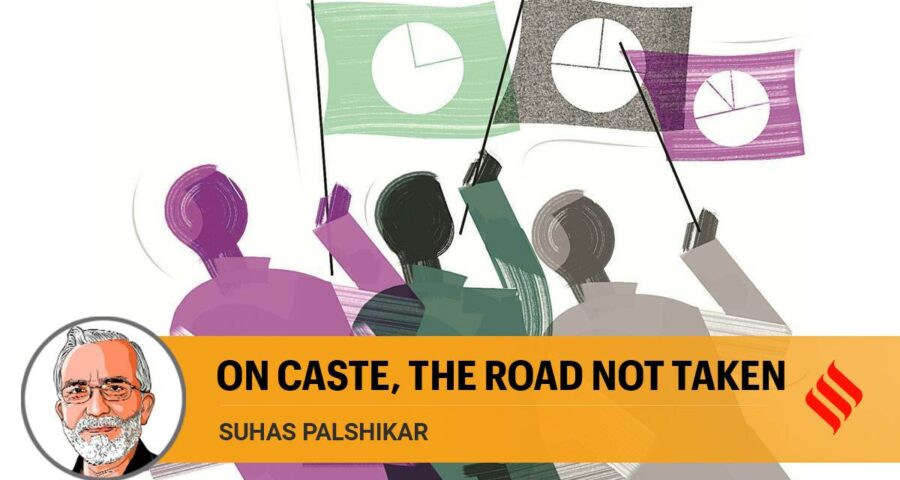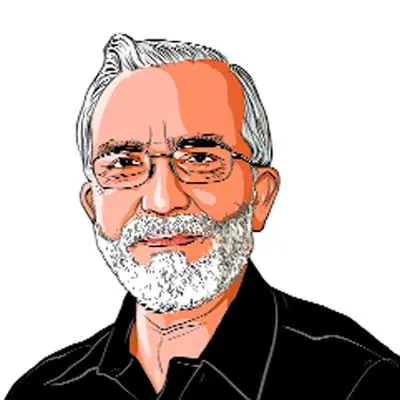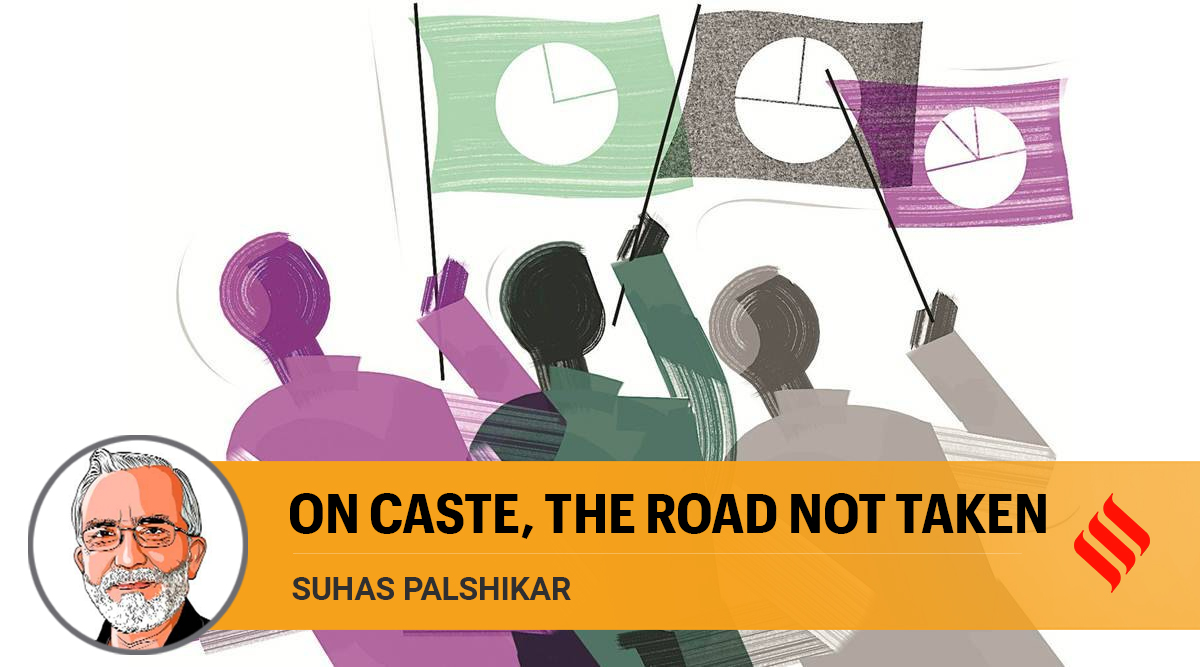Suhas Palshikar writes: It's a task best left to a third backward classes commission. The question is, are we ready for it?
Get email alerts for your favourite author. Sign up here
Caste continues to be a system of discrimination, but remedies for removing that discrimination keep eluding us, partly because of caste-based interests and partly because of the penchant to seek satisfaction in political correctness alone.
Two rulings of the Supreme Court have frayed nerves in Maharashtra on the broader question of “reservation”. One relates to creating a separate backward class consisting of Marathas and granting them reservation in jobs and education. The other pertains to OBC reservation in local bodies. Both issues have relevance beyond Maharashtra. But the habit of blinking at the big picture has so far allowed these issues to be limited to Maharashtra. Both rulings were the only expected judicial outcomes, but they represent an intellectual bankruptcy of our politics and the deadlock that the social justice project has hit.
The ruling about OBC reservation in local bodies goes at the root of the 73rd and 74th amendments, but the game in Maharashtra is confined to blaming political rivals. The crisis emerging from this ruling symbolises one aspect of what is wrong in implementing the policy of social justice. The issue of actual numbers or population share of OBCs has been talked about for over a decade, besides the need to understand the socio-economic situation of different backward communities. A clumsy initiative by the UPA government was not going to help much since the UPA government and its supporters did not know what to do with quantitative data gathered without a proper policy perspective. Besides the limited state capacity for enumeration, the Narendra Modi government’s priority lay elsewhere, as was shown in the case of the NRC. Therefore, during its seven years, the present government has chosen to keep the matter on the back-burner while benefiting from the OBC vote. But the central problem goes far beyond making available “the numbers”. In the last instance, we have to decide which groups are backward and what needs to be done for them.
That is why the Supreme Court ruling in the case of Maratha reservation was predictable. Equally predictably, the political class, including those in the forefront of the pro-reservation agitation, have consistently followed an ostrich-like approach of avoiding the juridical reality and clinging to a new consensus among parties — not only in Maharashtra, but elsewhere too — that the 50 per cent cap needs to be set aside legislatively. How the judiciary will respond to such a legislative response is anybody’s guess.
This response, as also the state government’s helplessness in the matter of OBC reservation in local bodies, represents the policy deadlock that stares at the political class and society in general. While experts will fruitfully debate the legal side of these issues, there is a need to realise that these are, in essence, political issues. They are the late legacies of the Mandal Commission. But that is only part of the story. Three decades ago, the marriage between politics and jurisprudence gave birth to a consensus. That consensus had three dimensions: Accepting (rather indirectly and unwillingly) that caste is the main cause of tradition-born backwardness among a large section of the population; resorting to “reservation” as the easiest policy response and third, recognising and accommodating the political aspirations of the backward sections by expanding the social base of the political elite.
This consensus has helped India’s elite and policymakers bypass the caste question since the mid-Nineties. But that same marriage between politics and jurisprudence has resulted in an unwanted child: The current deadlock on the question of social justice.
Today, that question has resurfaced in a distorted but politically attractive manner. Not only the Marathas, but Jats and Patidars, too, claim that vast numbers among them have been left behind in the contemporary economy. This may have an objective basis, but this argument has more than successfully deflected attention from two matters — that the enabling provision of the Constitution aims at social backwardness (caused by societal location) and that the causes of economic distress originating in development policies are distinct from backwardness primarily originating in caste location. Granting reservations on an economic basis seems to have complicated matters
Neither the judiciary nor politics seem to have any clue about how to now resolve this impasse. Like the consensus that survived the past three decades, the current deadlock, too, has three dimensions. First, it is represented by demands for reservation made by relatively better-off and politically powerful castes. Two, it represents the deep chasm that exists within backward sections, rendering politics of backwardness nearly impossible. Three, it sits at the cusp of sharpening caste identities and a weakening social justice agenda and tends to consolidate caste boundaries more than connecting to issues of social justice.
In a sense, both in terms of politics and policy, the energy generated by Mandal is now exhausted. This has happened both through the misuse and overuse of the weapon of reservation. A combination of political mediation and policy rejuvenation is now warranted.
Five issues require systematic consideration in the fields of politics, policy and intellectual discussions. Our superficial concerns of political correctness and quick popularity keep dissuading us from doing that. These five issues are not exactly new, but are acquiring renewed urgency.
The first is about intra-OBC differentiations. This was already flagged by a member of the Mandal Commission itself and most states have resorted to clumsy arrangements for “most” backward even as the Centre, too, is currently waiting for a report on this question. Two, intra-caste stratification is increasing — something that was rather limited at the time of Mandal. What sociologist D L Sheth called as classicisation is now becoming the central issue, with much complication. The third question is about the specific advantages and logic of reservation in the three different arenas of employment, education and political representation.
This, then, leads to the fourth and related issue which nobody wants to talk about, namely, the limits of reservation and the need to think of additional measures to augment the policy of social justice. Finally, the most challenging issue is setting boundaries. In a country where poverty and suffering is the norm, and well-being only a distant dream, how do we distinguish between backwardness primarily caused by a group’s social location in traditional social order and backwardness resulting from distortions of the political economy? While this surely is a tough task, unless we grapple it by the horns, reservation is bound to become the plaything of the political clout of different communities, probably producing a regime of separate reservation for relatively dominant castes.
These issues, particularly the last one, can be grappled only through a time-consuming process of harsh debates and drab detail. This and the related tasks are best left ideally to a third backward classes commission whose time has come. The only question is, are we ready for it?
This column first appeared in the print edition on July 16, 2021 under the title ‘On caste, the road not taken’. The writer, based in Pune, taught political science and is currently chief editor of Studies in Indian Politics.
Source: Read Full Article




